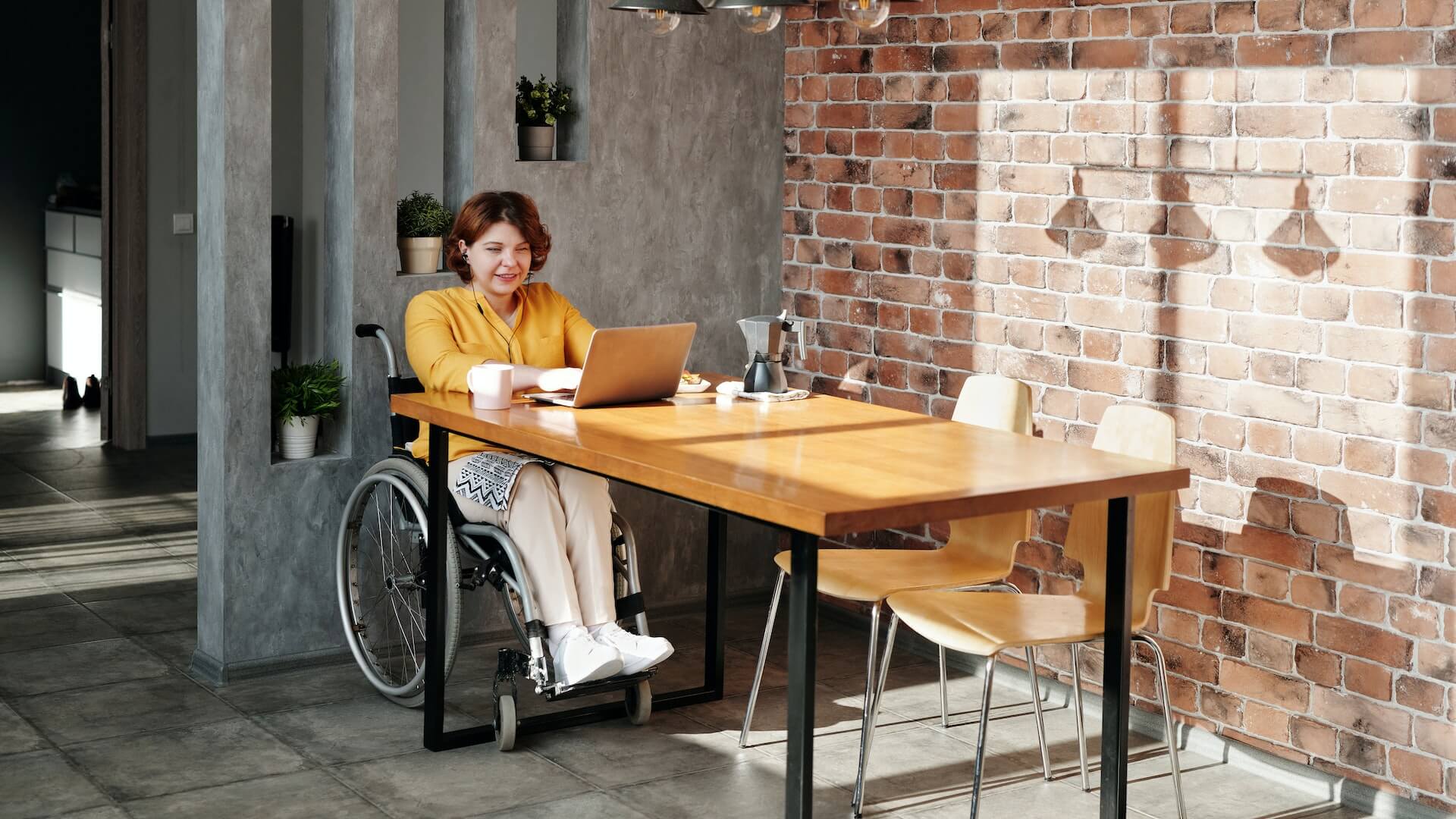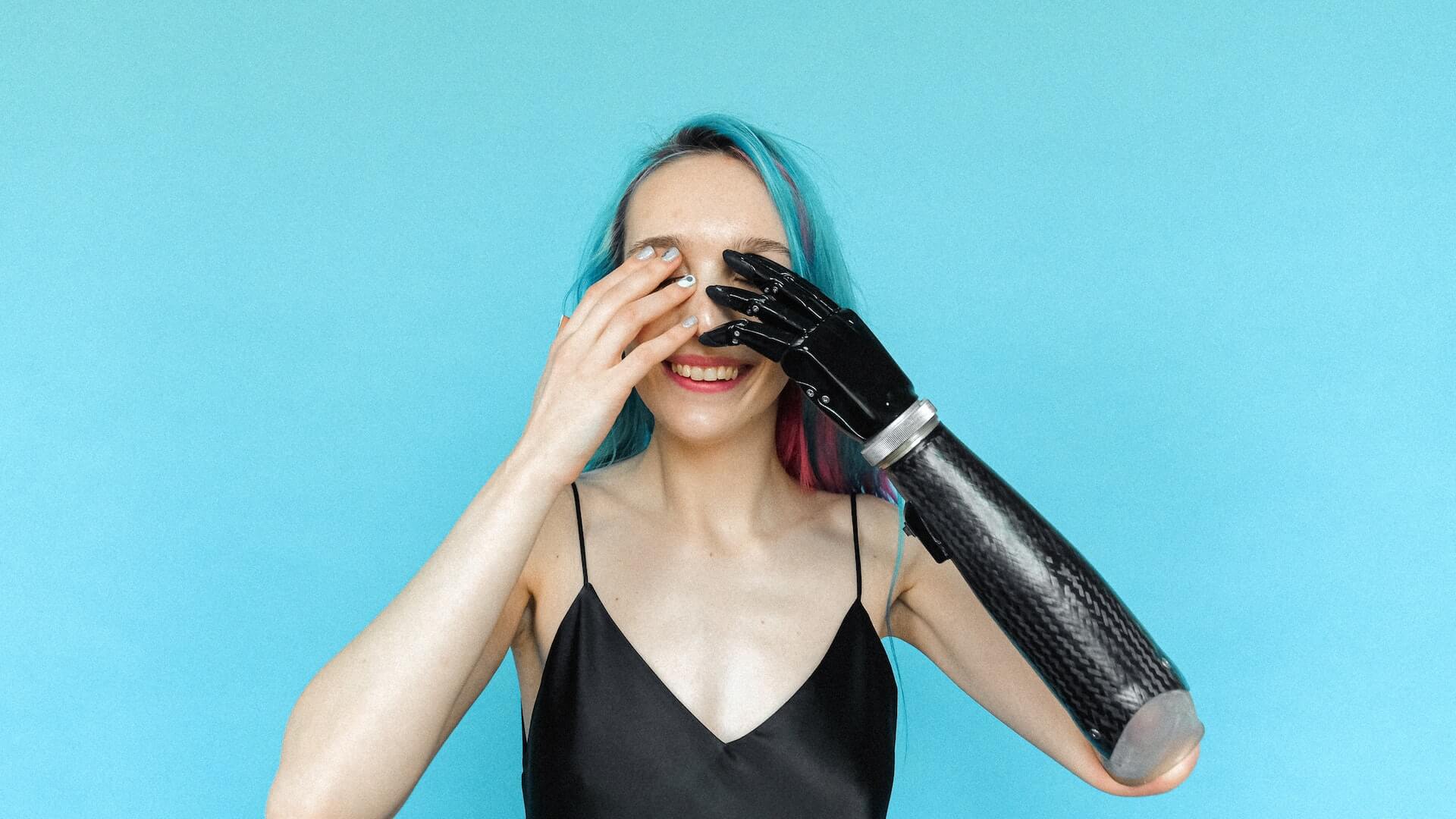For decades, disability has been viewed as a hindrance to success and a barrier to living life to the fullest. However, the truth is, disability is not an inability, but rather an opportunity to overcome challenges and showcase one’s unique abilities. In recent years, there has been a growing movement towards empowering those with disabilities and breaking down the societal barriers that have long held them back. From inclusive workplaces and accessible public spaces to adaptive sports and technologies, the world is starting to see disability in a new light. In this post, we will explore the ways in which people with disabilities are breaking barriers and redefining what it means to be disabled in today’s society. We’ll look at the challenges that still exist and the progress that has been made, as well as the inspiring stories of individuals who are living life to the fullest despite their disabilities. Join us in celebrating the incredible abilities of those who have long been overlooked and underestimated, and learn how you too can be a part of this inspiring movement.
Introduction: Understanding the concept of disability and its impact on individuals
In today’s society, it is crucial to foster a deep understanding of disability and its profound impact on individuals. Disability is not a limitation or a condition that defines a person; instead, it is a unique aspect of their identity that shapes their experiences and interactions with the world. By embracing the concept of disability, we can break down barriers, challenge societal norms, and empower individuals to redefine what it means to live with a disability.

Disability encompasses a wide range of conditions, both visible and invisible, that can affect a person’s physical, cognitive, sensory, or mental abilities. It is crucial to recognize that disability is not synonymous with inability. Each individual has their own set of strengths, talents, and abilities that should be celebrated and nurtured.
Unfortunately, society often perpetuates misconceptions and stereotypes surrounding disability, leading to discrimination, exclusion, and limited opportunities for individuals with disabilities. This not only hinders their personal growth and development but also deprives society of the unique contributions and perspectives they have to offer.
By understanding the impact of disability, we can challenge these misconceptions and work towards a more inclusive and accessible society. It is essential to recognize that disability is not a flaw or a defect; it is a natural variation of human diversity. Just as we celebrate differences in race, gender, and culture, we should embrace and value the diversity of abilities.
Challenging misconceptions and stereotypes surrounding disabilities
Often, individuals with disabilities are unfairly labeled and limited by preconceived notions that do not accurately represent their capabilities. This perpetuates a cycle of exclusion and inequality, preventing individuals with disabilities from fully participating in various aspects of life.
By actively challenging these misconceptions, we can create a more inclusive and understanding society. It is important to recognize that disabilities do not define a person’s worth or abilities. Each individual possesses unique talents, skills, and perspectives that should be acknowledged and celebrated.
One way to challenge these misconceptions is through education and awareness. Providing accurate information and promoting positive narratives about disabilities can help break down barriers and reshape public perceptions. This can be done through various means, such as workshops, awareness campaigns, and inclusive media representation.
Additionally, fostering meaningful interactions and promoting inclusivity in all aspects of life is essential. Encouraging individuals with disabilities to participate in social, educational, and professional settings allows for the dismantling of stereotypes through firsthand experiences. When people with disabilities are given equal opportunities to showcase their talents and abilities, it not only challenges misconceptions but also enriches our collective understanding of diversity.
Redefining disability: Shifting the focus from limitations to abilities
Instead of focusing on what individuals with disabilities cannot do, let’s focus on their abilities, strengths, and potential.

Every person, regardless of their abilities, has unique talents and skills to offer. By highlighting and valuing these abilities, we can create a more inclusive and empowering society for everyone. It is crucial to recognize that disability does not define a person’s worth or potential. Rather, it is just one aspect of their identity.
By shifting the focus from limitations to abilities, we can break down the barriers that prevent individuals with disabilities from fully participating in society. This means providing equal opportunities, access to education, employment, and healthcare, and creating an environment that celebrates diversity and inclusion.
For instance, instead of assuming that someone with a physical disability cannot participate in sports, we should provide adaptive sports programs that cater to their abilities. By doing so, we not only promote physical well-being but also foster a sense of belonging and empowerment.
Moreover, businesses and organizations should actively seek to include individuals with disabilities in their workforce. By doing this, they tap into a pool of talented individuals who bring unique perspectives, problem-solving skills, and creativity to the table.
Redefining disability is not just about changing our language or perception; it is about dismantling the physical, attitudinal, and systemic barriers that hinder individuals with disabilities from fully participating in society. It is about creating a world where everyone’s abilities are recognized, valued, and celebrated.
The power of inclusive education and employment opportunities
In today’s society, there is a growing recognition of the power of inclusive education and employment opportunities for individuals with disabilities. In the past, individuals with disabilities often faced barriers that limited their access to education and employment, leaving them feeling marginalized and excluded from society. However, times are changing, and more and more organizations are realizing the immense potential and unique perspectives that individuals with disabilities bring to the table.
Inclusive education is a transformative approach that aims to provide students with disabilities the same educational opportunities as their peers without disabilities. Rather than segregating students with disabilities into separate classrooms or schools, inclusive education promotes an environment where all students, regardless of their abilities, learn together. This not only benefits students with disabilities by fostering a sense of belonging and promoting their academic growth, but it also benefits their peers by fostering empathy, understanding, and acceptance.
Similarly, creating employment opportunities that are inclusive and accessible for individuals with disabilities is crucial in breaking down barriers and redefining disability. It is essential for employers to recognize that individuals with disabilities possess valuable skills, talents, and potential contributions to the workforce. By providing reasonable accommodations, such as adaptive technology or flexible work arrangements, employers can create an inclusive work environment where individuals with disabilities can thrive and fully utilize their abilities.
The power of inclusive education and employment opportunities goes beyond just the individuals with disabilities themselves. It has a ripple effect on society as a whole, fostering a more inclusive and diverse community. By embracing inclusion, we can tap into the vast talents and capabilities of all individuals, regardless of their abilities, and create a society that celebrates diversity and empowers everyone to reach their full potential.
Assistive technologies and innovations that empower individuals with disabilities
One remarkable example is the advancement in prosthetics. Gone are the days when prosthetic limbs were merely functional; today, they are marvels of engineering that closely mimic the movements and capabilities of natural limbs. With the integration of robotics and advanced materials, individuals with limb loss can regain their mobility and engage in activities they once thought impossible.

Moreover, assistive technologies have transformed communication for individuals who are deaf or hard of hearing. The development of cochlear implants and hearing aids has enabled those with hearing impairments to experience sound and engage in conversations, bridging the communication gap that once existed.
In the realm of visual impairments, assistive technologies have opened up a world of possibilities. Screen readers and braille displays allow individuals with visual impairments to access digital content, navigate websites, and even pursue higher education or professional careers. Additionally, advancements in wearable technologies have given rise to smart glasses and sensory aids that enhance mobility and spatial awareness for those with visual impairments.
Furthermore, innovative solutions have emerged to address cognitive disabilities. Specialized apps and software assist individuals with learning disabilities, autism, or attention deficit disorders in managing their time, organizing tasks, and improving their cognitive skills. These technologies provide personalized support and enable individuals to thrive academically and professionally.
Advocacy and policy changes for creating an inclusive society
Advocacy is the process of speaking up, raising awareness, and influencing decision-makers to bring about positive changes. It involves educating the public, policymakers, and businesses about the rights and needs of people with disabilities. By advocating for inclusive policies, individuals and organizations can contribute to dismantling discriminatory practices and ensuring that everyone has access to necessary resources and accommodations.
Policy changes are essential for creating a legal framework that protects the rights of individuals with disabilities and promotes their full participation in society. These changes can range from implementing accessibility standards in public spaces and transportation to providing equal employment opportunities and inclusive education.
Advocacy and policy changes also involve challenging societal attitudes towards disability. By promoting awareness campaigns, sharing personal stories, and fostering dialogue, we can challenge stereotypes and misconceptions surrounding disability. This helps to foster a more inclusive and accepting society, where individuals with disabilities are valued for their abilities rather than defined by their limitations.
Breaking barriers: Promoting accessibility and inclusivity in public spaces
One of the first steps towards promoting accessibility is to conduct a thorough audit of public spaces, identifying areas that may pose challenges for individuals with disabilities. This includes examining entrances, pathways, restrooms, seating arrangements, and signage. By identifying these barriers, we can start developing strategies to remove them and make spaces more accommodating for everyone.
Installing ramps, elevators, and handrails can greatly enhance the accessibility of buildings and public facilities. Additionally, ensuring that pathways are wide enough to accommodate wheelchairs and mobility devices is essential. Clear and visible signage with Braille options can assist individuals with visual impairments in navigating public spaces independently.
Another crucial aspect of promoting inclusivity is training and educating staff members and service providers. They should be knowledgeable about the needs and rights of individuals with disabilities, as well as how to effectively communicate and assist them. This includes learning basic sign language, being patient and understanding, and providing appropriate support when needed.
Public spaces should also consider the availability of assistive technologies and devices. These can range from hearing loops for individuals with hearing impairments to captioning services for those with deafness or hard-of-hearing. Additionally, providing seating options that accommodate individuals with mobility limitations or chronic pain can help create a more comfortable and inclusive environment.
Moreover, fostering a culture of inclusivity means actively seeking feedback from individuals with disabilities and incorporating their suggestions and recommendations. Their unique perspectives can provide valuable insights into potential barriers and innovative solutions. By involving them in the decision-making process, we ensure that public spaces are truly designed to meet their needs.
The role of society in supporting individuals with disabilities
Society plays a crucial role in supporting individuals with disabilities and empowering them to overcome barriers and redefine what it means to live with a disability. It is not just the responsibility of individuals with disabilities to adapt to a world that may not always be inclusive or accessible. Rather, it is the collective duty of society to create an environment that celebrates diversity and ensures equal opportunities for everyone, regardless of their abilities.

One way society can support individuals with disabilities is by fostering an inclusive mindset. This means actively challenging stereotypes, prejudices, and misconceptions about disabilities. By promoting a culture of acceptance and understanding, we can create a more inclusive society where individuals with disabilities are valued for their abilities and contributions rather than being defined by their disabilities.
Another important aspect of supporting individuals with disabilities is providing accessible infrastructure and resources. This includes physical accessibility in public spaces, such as wheelchair ramps, accessible restrooms, and designated parking spaces. It also encompasses digital accessibility, ensuring that websites, digital content, and technology are designed to be accessible to all individuals, including those with visual, hearing, or motor impairments.
Education and employment opportunities are also vital in empowering individuals with disabilities. Society should strive to provide inclusive educational environments that accommodate diverse learning needs and promote equal access to quality education. Additionally, employers should embrace inclusive hiring practices, providing reasonable accommodations and creating a supportive workplace environment that enables individuals with disabilities to fully participate and contribute their unique skills and talents.
Furthermore, society can support individuals with disabilities by promoting their active participation in recreational and cultural activities. This includes ensuring that recreational facilities, parks, theaters, and cultural events are accessible to all individuals, allowing them to fully engage and enjoy these experiences without limitations or barriers.
Conclusion
It is crucial to recognize that disability does not define a person’s worth or capabilities. By breaking barriers and fostering inclusivity, we can create a society that celebrates diversity and provides equal opportunities for everyone. Let us continue to challenge societal norms, advocate for accessibility, and uplift individuals with disabilities. Together, we can build a more inclusive and empowering world for everyone.



